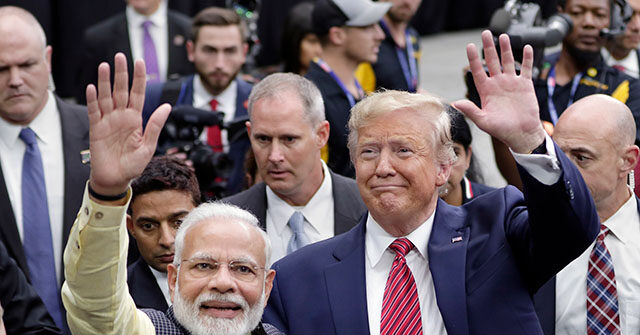Indian Foreign Minister Subrahmanyam Jaishankar said on Sunday that India is not “nervous” about Donald Trump’s return to the White House.
Instead, he argued Trump’s landslide victory in the U.S. presidential election was part of a global political realignment that India wholeheartedly supports.
“I know today a lot of countries are nervous about the U.S. Let’s be honest about it: we are not one of them,” Jaishankar said at the silver jubilee celebration for an Indian scholarship group in Mumbai.
Jaishankar said a “shift” in power from the Western world to the East was underway, but the West remained powerful and influential, especially the United States. He expected Indian Prime Minister Narendra Modi’s solid personal relationship with Trump to pave the way for more cooperation between the two countries.
“Do remember one thing: the older, the western economies, the older industrialized economies, they have not gone away. They still count. They are still prime investment targets. They are big markets, strong technology centers, hubs for innovation,” he told his audience in Mumbai.
“So let’s recognize the shift, but let’s not get carried away and kind of overstate it, and distort our own understanding of the world,” he advised.
Jaishankar said Modi was among the “first three calls, I think, that President Trump took.”
“Prime Minister Modi has actually built rapport across multiple presidents,” he said. “When he first visited D.C., Obama was the president, then it was Trump, then it was Biden. So, you know, for him, there’s something natural in terms of how he forges these relationships.”
Trump has generally spoken highly of Modi but he also complained about India’s high tariffs in a major economic policy speech in October.
“Perhaps the most important element of my plan to make America extraordinarily wealthy again is reciprocity. It’s a word that’s very important in my plan because we generally don’t charge tariffs,” Trump said in the speech, which he delivered in Detroit, Michigan.
“We really don’t charge. China will charge us a 200 per cent tariff. Brazil is a big charger. The biggest charger of all is India,” he said.
Trump went on to cushion the blow by touting his “great relationship with India” and praising Modi as a “great leader” and “great man.”
“I mean, I think they probably charge more than, in many ways, China. But they do it with a smile. They do it … Sort of a nicer charge. They said thank you so much for purchasing from India,” Trump quipped.
The U.S. and India fought a tariff war during Trump’s first term, with India slapping tariffs of up to 70 percent on some U.S. products after the Trump administration refused to exempt Indian steel and aluminum from higher taxes.
India developed a sizable trade imbalance with the United States under President Joe Biden, increasing its exports by 46 percent to $77.5 billion, while imports from the U.S. grew only 17.9 percent, from $35.8 billion to $42.2 billion.
Many observers expected India to quietly root for a Kamala Harris victory in the 2024 election, since she said nothing during the campaign about getting tougher on the trade deficit with India and probably would have kept Biden’s soft policy platform.
Under Trump’s leadership, Indian exporters are now worried about increased tariffs on pharmaceuticals, textiles, automobiles, wine, and information technology products, in addition to the return of steel and aluminum tariffs. Trump has hinted India could alleviate these hikes by lowering its own tariffs on key American products, such as Harley-Davidson motorcycles.
Reuters on Monday rounded up some economists who thought India might profit from the second Trump administration by presenting itself as a “safe haven” for global investors worried about “the spillover of Donald Trump’s economic policies, including from any protectionist trade policies that could spark emerging market volatility.”
“India’s strong economic growth, limited exposure to Chinese and the U.S. consumer market, robust local appetite for equities and a central bank devoted to ensuring currency stability will bolster the country’s appeal amid global unease,” Reuters contended.
Hong Kong portfolio manager Sat Duhra said investors who were shifting from Indian stocks to China might stampede back to India, because China’s already faltering market could “face downward pressure from Trump’s victory.”
India’s loss of foreign investment was actually quite dramatic in October, totaling a record-breaking $11.2 billion in lost equity, but media coverage of the loss was subdued because domestic investors increased their stock purchases enough to erase the loss.
Read the full article here
